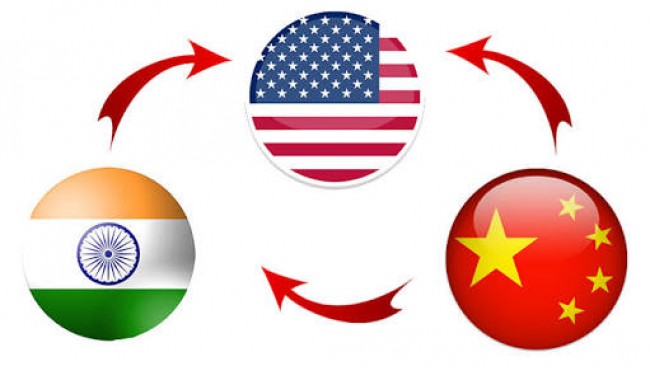
The simmering border conflict between India and China in the Himalayan region has come to an end, with both nations committing to cooperate in resolving their border disputes. Both countries recognise that such conflicts hinder the progress of peace and prosperity in the region, posing obstacles to establishing a multipolar world and the democratisation of global geopolitics. This diplomatic achievement has disrupted the agenda of imperialist blocs that sought to escalate the conflict into a full-blown war between India and China, threatening peace, stability, and prosperity in both countries and around the world.
The border conflict between India and China acted as a key catalyst for reviving NATO’s waning influence by promoting the establishment of an “Asian NATO” through the Quadrilateral Security Dialogue (QUAD), comprising Australia, Japan, India, and the United States. The QUAD considers itself as ‘a force of good’ for regional peace and security. In reality, the QUAD is neither designed to promote peace in Asia nor to promote mechanisms for resolving colonial-era border conflicts within the region. India was drawn into this desperate attempt to establish the QUAD, which aims to contain both India and China, facilitating continued imperialist and neo-colonial exploitation of Asia’s natural resources and people while expanding hegemonic imperialist control over world. So, the India-China cooperation and the decline of QUAD are positive developments for peace in Asia and the world.
Trilateral military and security alliances such as AUKUS and JAUKUS, involving Japan, Australia, the UK, and the US, are designed not only to contain China but also to contain India in the future. The containment of China is not a policy specific to China, but rather a strategy employed by imperialist Western countries led by the US to undermine all post-colonial nations and their efforts to free themselves from various forms of colonialism. The imperialist and colonial bloc led by these countries is intolerant of peace and prosperity in Asia, Africa, Middle East and Latin America. The strategies of wars, conflicts and containments are central to their imperialist and colonial hegemony, as well as the exploitation of natural and human resources. The military-industrial complex continues to serve as the foundation of all imperialist ventures aimed at upholding the interests of corporate capitalism in its various forms. It undermines cooperation and human solidarity, transforming these values into conflicts in the name of democracy, religion, culture, territory, and the sovereignty of the nation-states.
The Westphalian ideology and its narratives surrounding territorial national interests serve the corporate interests promoted by imperialist countries led by the US. India-China cooperation must move away from narrow territorial national interests and instead prioritise the interests of the people beyond borders. This approach can offer alternatives to the militarised capitalism perpetuated by European and American ruling and non-ruling hegemons. There is no alternative to be found within European and American exceptionalism. It only perpetuates wars and conflicts in the name of democracy and human rights while keeping people marginalised and deprived of a dignified life.
In the context of the broader interests of working people, cooperation between India and China must embrace an internationalist outlook that extends beyond merely resolving border disputes. It should aim to establish long-term mechanisms that promote anti-imperialist and anti-colonial global institutions, to ensure the democratisation of international politics and the consolidation of global peace and stability. As imperialist powers fuel wars and conflicts to conceal their failures and sustain their dominance, people worldwide continue to suffer. Working people in Europe and the United States are increasingly experiencing the impacts of corporate-driven imperialist hegemony and exploitation. Therefore, major countries like India and China have a shared responsibility to collaborate in pursuit of global peace and the prosperity of all working people.
